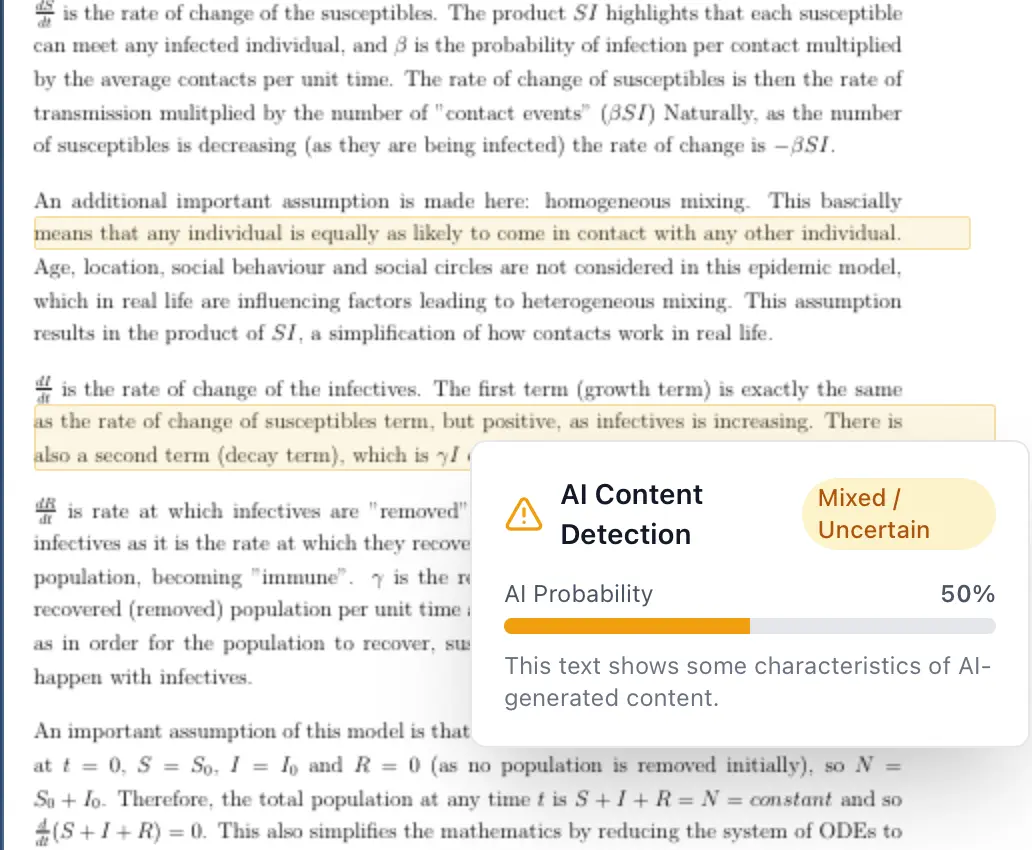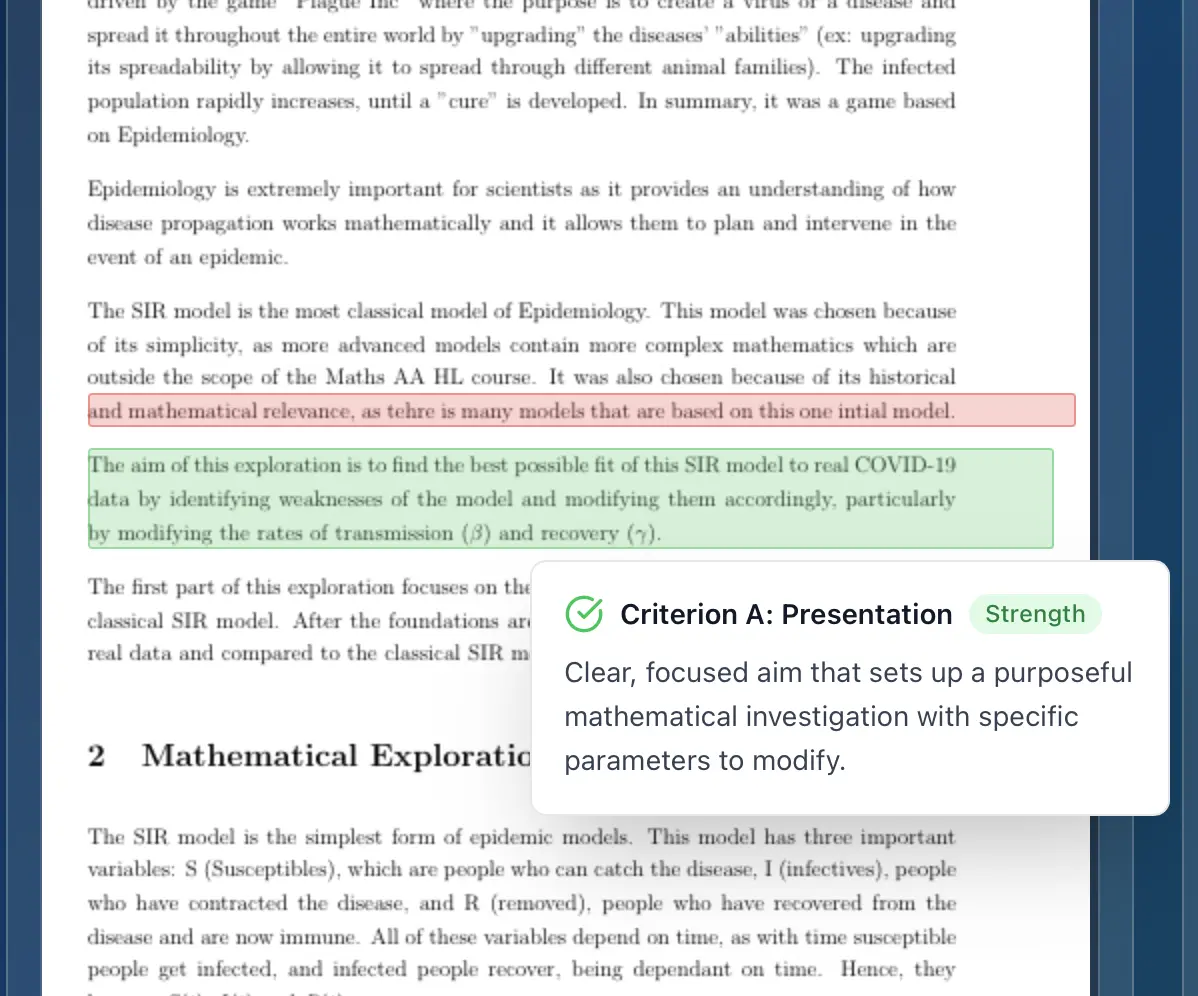How to Develop a Strong Research Question for Your CS EE
Developing a strong research question is the cornerstone of a successful Computer Science Extended Essay (CS EE) in the International Baccalaureate (IB) program. A well-defined question not only guides your research but also significantly impacts your final grade. This comprehensive guide will equip you with the knowledge and strategies to craft a focused, relevant, and researchable question that aligns with IB assessment criteria and sets you on the path to achieving a high score. We'll cover everything from understanding the core requirements to avoiding common pitfalls, ensuring you're well-prepared to tackle this challenging but rewarding task.
Introduction (Answer the Query Immediately)
The Computer Science Extended Essay (CS EE) is a significant undertaking in the IB Diploma Programme. And at the heart of a successful EE lies a well-defined research question. This question acts as the compass, guiding your research, analysis, and ultimately, your conclusions. A strong research question for your CS EE should be focused, relevant to the field of computer science, and, most importantly, researchable within the scope of the EE. This guide will provide you with a step-by-step approach to formulating such a question, ensuring you meet the IB's rigorous assessment criteria and maximize your chances of success. We'll explore examples, common pitfalls, and advanced strategies to help you excel in your CS EE journey.
Struggling with IB Assessments?
Get instant, detailed feedback on your work with AI that understands IB criteria.

Core Content Sections
Understanding the Importance of a Strong Research Question
Your research question is more than just a question; it's the foundation upon which your entire EE is built. It dictates the direction of your research, the data you collect, the analysis you perform, and the conclusions you draw. A weak or poorly defined question can lead to unfocused research, superficial analysis, and ultimately, a lower grade. According to Criterion A: Focus and Method, a sharply focused and clearly related research question is crucial for achieving top marks.
Key Characteristics of a Good CS EE Research Question
A strong CS EE research question possesses several key characteristics:
- Focus: It's specific and addresses a narrow aspect of computer science. Avoid broad, general questions that are difficult to answer within the EE's word limit.
- Relevance: It's directly related to computer science concepts, theories, or applications.
- Researchability: It's answerable through research, data collection, and analysis. You should be able to find sufficient information and resources to support your investigation.
- Originality: While you don't need to discover something entirely new, your question should allow for some degree of original thought, analysis, or application.
- Feasibility: It's achievable within the time constraints and resources available to you.
Step-by-Step Guide to Developing Your Research Question
- Explore Your Interests: Start by identifying areas of computer science that genuinely interest you. This could be anything from artificial intelligence and machine learning to cybersecurity and web development.
- Conduct Preliminary Research: Once you have a general area of interest, conduct some preliminary research to gain a better understanding of the topic. This will help you identify potential research questions and assess the availability of resources.
- Brainstorm Potential Questions: Based on your research, brainstorm a list of potential research questions. Don't worry about being too specific at this stage; the goal is to generate as many ideas as possible.
- Refine and Focus Your Questions: Review your list of questions and refine them to make them more focused and specific. Consider using the "5 Ws and 1 H" (Who, What, Where, When, Why, and How) to help you narrow down your focus.
- Assess Researchability: Evaluate each question to determine whether it's researchable within the scope of the EE. Can you find sufficient data and resources to answer the question? Are there any ethical considerations that you need to address?
- Formulate Your Final Research Question: Based on your assessment, select the question that you believe is the most promising and formulate it into a clear, concise, and focused statement.
Examples of Strong and Weak Research Questions
Weak Research Question:
- "What are the benefits of using artificial intelligence?" (Too broad and general)
- "Is cybersecurity important?" (Too simplistic and lacks focus)
Strong Research Question:
- "To what extent can machine learning algorithms improve the accuracy of fraud detection in online banking systems?" (Focused, relevant, and researchable)
- "How effective are different encryption techniques in protecting sensitive data stored in cloud-based databases?" (Specific, relevant, and allows for comparative analysis)
- "To what extent does the implementation of agile methodologies impact the efficiency of software development teams in the context of [Specific Industry]?" (Contextualized, measurable, and relevant)
The Importance of Justification and Rationale
Once you have formulated your research question, it's crucial to justify its significance and explain why it's worth investigating. This justification should be included in your EE's introduction and should address the following points:
- Relevance to Computer Science: Explain how your research question relates to core computer science concepts, theories, or applications.
- Significance of the Topic: Highlight the importance of your research question and its potential impact on the field of computer science or society.
- Rationale for Investigation: Explain why you chose to investigate this particular question and what you hope to achieve through your research.
Common Challenges/Mistakes Section
Overly Broad or Vague Questions
One of the most common mistakes is choosing a research question that is too broad or vague. This makes it difficult to focus your research and draw meaningful conclusions.
Solution: Narrow down your focus by specifying the scope of your investigation. For example, instead of asking "What are the benefits of using artificial intelligence?", focus on a specific application of AI, such as "To what extent can machine learning algorithms improve the accuracy of fraud detection in online banking systems?"
Lack of Researchability
Another common mistake is choosing a research question that is difficult or impossible to answer through research. This could be due to a lack of available data, ethical considerations, or limitations in your resources.
Solution: Conduct preliminary research to assess the availability of resources and data. Consider alternative research questions that are more feasible within the scope of the EE.
Insufficient Computer Science Content
The EE must demonstrate a clear understanding of computer science principles. A question that is too focused on a related field (e.g., business, mathematics) without a strong CS connection will not score well.
Solution: Ensure your question directly addresses a computer science topic. If your interest lies in an interdisciplinary area, clearly articulate the CS aspects and how they will be investigated.
Ignoring Ethical Considerations
Computer science research can raise ethical concerns, particularly in areas like AI, data privacy, and cybersecurity. Ignoring these considerations can negatively impact your grade.
Solution: Identify any potential ethical implications of your research and address them in your EE. This could include discussing data privacy concerns, potential biases in algorithms, or the responsible use of technology.
Pro Tip: Get AI-Powered Grading
Stop second-guessing your grades. Get instant feedback aligned with official IB rubrics.

Advanced Tips/Strategies Section
Refining Your Question Through Iteration
Developing a strong research question is an iterative process. Don't be afraid to revise and refine your question as you conduct your research and gain a deeper understanding of the topic.
Strategy: Regularly review your research question and ask yourself whether it's still relevant, focused, and researchable. Be prepared to make adjustments as needed.
Consulting with Your Supervisor
Your supervisor is a valuable resource for developing your research question. They can provide guidance, feedback, and suggestions for improvement.
Strategy: Schedule regular meetings with your supervisor to discuss your research question and get their input. Be open to their suggestions and be prepared to defend your choices.
Exploring Interdisciplinary Approaches
While your research question should be firmly rooted in computer science, exploring interdisciplinary approaches can add depth and originality to your EE.
Strategy: Consider how computer science intersects with other fields, such as mathematics, statistics, engineering, or business. Look for opportunities to integrate concepts and theories from these fields into your research.
Using a Framework for Question Development
Consider using a framework like the PICO (Population, Intervention, Comparison, Outcome) framework, adapted for CS, to structure your research question. This can help ensure it's focused and measurable. For example:
- Population: Online banking users
- Intervention: Machine learning fraud detection algorithms
- Comparison: Traditional rule-based fraud detection systems
- Outcome: Improved accuracy of fraud detection
This leads to the research question: "To what extent can machine learning algorithms improve the accuracy of fraud detection in online banking systems compared to traditional rule-based systems?"
Technology and Modern Assessment Section
The landscape of education is constantly evolving, and technology plays an increasingly important role in assessment. AI-powered tools are transforming the way students learn and the way teachers evaluate their work. These tools offer numerous benefits, including increased efficiency, improved accuracy, and personalized feedback.
In the context of the IB program, AI grading assistants like Marksy are revolutionizing the assessment process. Marksy provides instant, accurate, and detailed feedback on student work based on official IB rubrics. This helps teachers save time and ensures consistency in grading. More importantly, it provides students with clear, actionable insights into how they can improve their work.
Marksy utilizes sophisticated algorithms to analyze student essays and provide feedback aligned with the specific criteria outlined in the IB rubric. For example, in the context of Criterion A: Focus and Method, Marksy can assess the clarity of the research question and provide suggestions for improvement. Similarly, for Criterion C: Critical Thinking, Marksy can evaluate the depth of analysis and the strength of the conclusions. By leveraging AI, Marksy ensures that students receive fair, objective, and comprehensive feedback, helping them to achieve their full potential.
The use of AI in assessment also promotes transparency and accountability. By providing a clear and consistent framework for grading, AI tools help to eliminate bias and ensure that all students are evaluated fairly. This is particularly important in the IB program, where assessment is a critical component of the overall learning experience.
Conclusion with Clear Next Steps
Developing a strong research question for your CS EE is a challenging but essential task. By following the steps outlined in this guide, you can increase your chances of success and achieve a high score. Remember to focus on your interests, conduct thorough research, refine your questions through iteration, and seek guidance from your supervisor.
Here are some actionable next steps you can take:
- Brainstorm potential research areas: Spend some time exploring different areas of computer science that interest you.
- Conduct preliminary research: Dive deeper into your chosen areas and identify potential research questions.
- Refine your questions: Use the tips and strategies outlined in this guide to make your questions more focused, relevant, and researchable.
- Consult with your supervisor: Discuss your research questions with your supervisor and get their feedback.
- Start writing your EE: Once you have a strong research question, start writing your EE and put your research into action.
To further enhance your IB journey and streamline your assessment process, consider exploring Marksy, the AI grading assistant designed specifically for the International Baccalaureate. Try Marksy for free today and experience the difference that AI-powered feedback can make in your IB scores or your teaching workflow!